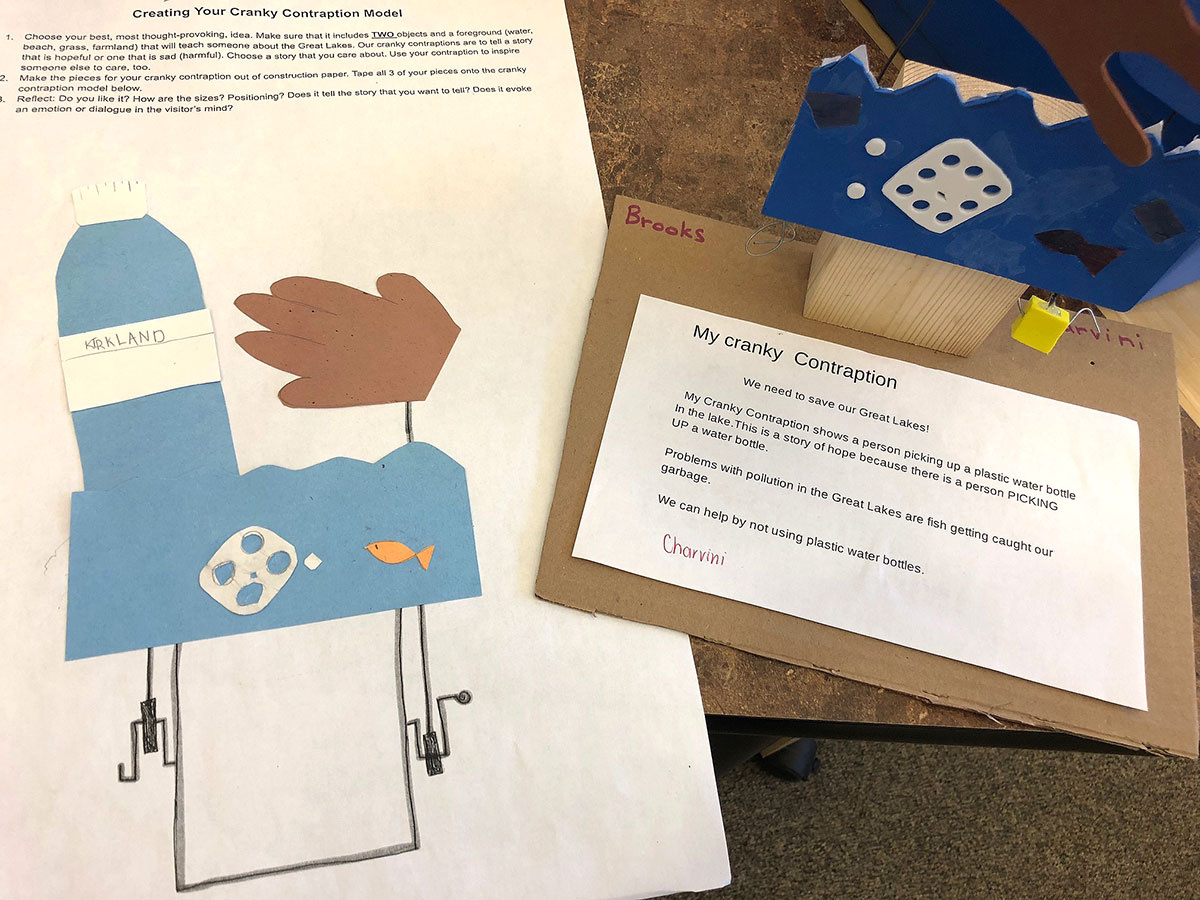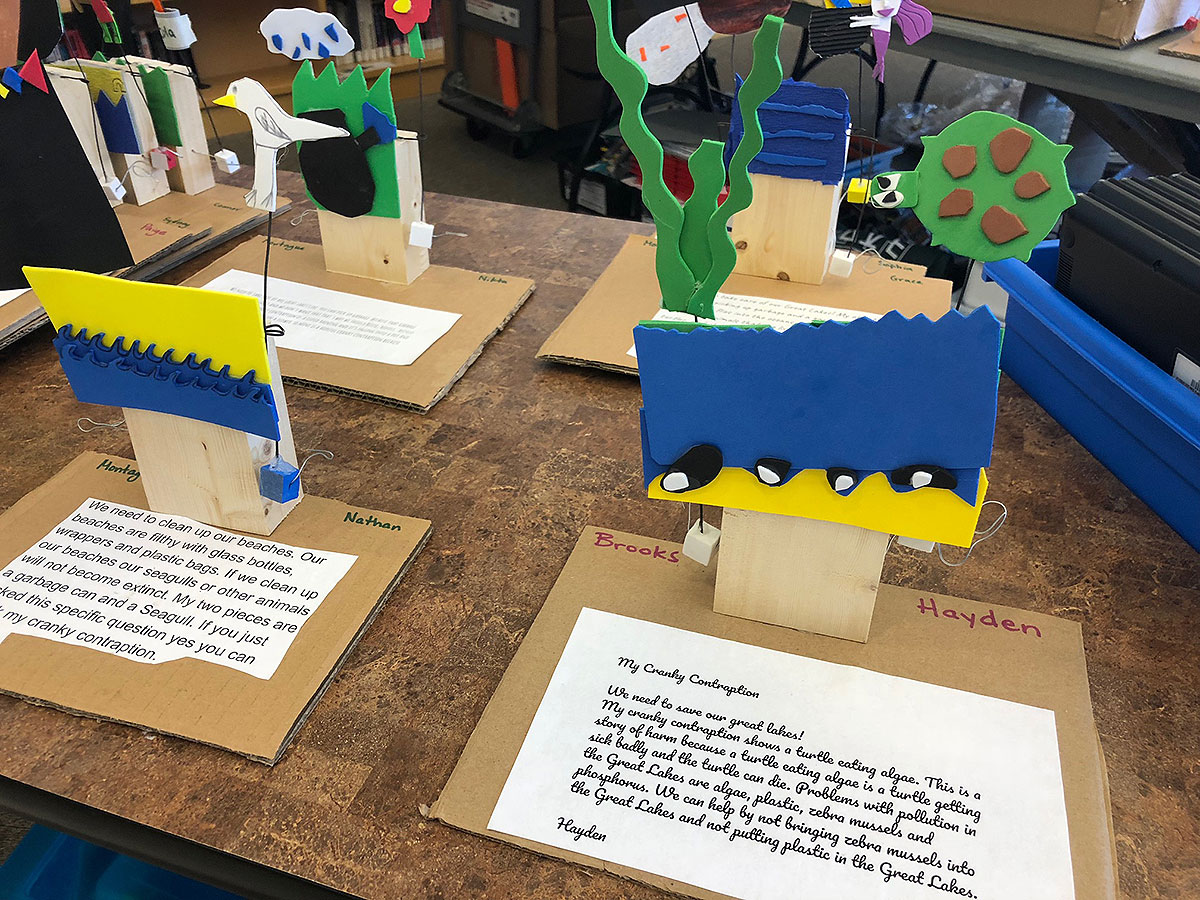Westminster Woods PS inquiry project starts a conversation about the Great Lakes
May 9, 2018
GUELPH, Ontario – Students at Westminster Woods PS are building empathy and understanding about the world’s largest freshwater system.
For the past few weeks, grade 3 students have been participating in an inquiry project, researching stories of hope and harm within the Great Lakes. The inquiry project is led by the school’s grade three teaching team and teacher-librarian, who have worked together to bring the project to life.
The goals of the project are to build empathy and increase understanding about the Great Lakes, learn about the effects of climate change and high phosphorous levels near the Great Lakes and also make a sculpture to reflect their learning.
As part of the project, students created moveable structures, called “Cranky Contraptions,” which capture their Great Lakes stories. They each chose a story of hope or harm to tell and built objects to help tell this story. Before building the contraptions, students created multiple slideshows to show that the really understood the issues they were working on.

The Cranky Contraptions depicted a number of topics, ranging from invasive species like Zebra mussels, to the effects of microbeads on fresh water lakes.

The idea for the Cranky Contraptions came from a project conceptualized by The Tinkering Studio in San Francisco. Cranky Contraptions are essentially simple moving toys that use a ‘crank slider’ to create motion. The school connected with The Tinkering Studio to hear about their project and get tips on how to make the contraptions.
Westminster Woods students designed cardstock models for their contraption, which they eventually built out of materials including blocks of wood, foam blocks and sheets, and wire.
#crankycontraption Building Day!! We are having a blast. Gr. 3s making a crank motion mechanism. Lots of firsts happening today. #LibLC #makerspace @TinkeringStudio @ryokomatsumoto With @KathrynakaKate @wmwtrailblazers pic.twitter.com/NtmHR7iyDz
— Sara Furnival (@sarafurnival) April 25, 2018
Also as part of this study, the school wanted to connect directly with experts who have dedicated their lives to Great Lakes protection and awareness. They spoke to University of Toronto Professor and Nobel Peace Prize winner Brad Bass about the importance of walking and biking and avoiding products that contact plastic microbeads. They also spoke to Katie Larson from the Alliance for the Great Lakes, who shared her passion for protecting the Great Lakes with the grade 3 students, helping to build empathy and understanding for our fresh water systems.
The school also connected with a school in Santa Cruz, California, to teach students there about the Great Lakes. As a next step, they will again connect with the students in Santa Cruz, to show them their work.
On May 3, the school held an event to showcase all the hard work that has gone into the inquiry project.
So wonderful to share our #GreatLakes #CrankyContraptions with our @wmwtrailblazers school community tonight! Lots of photos of proud students with their projects tonight. Their passion for protecting our Great Lakes shouted from their work. @KathrynakaKate @TinkeringStudio pic.twitter.com/YrNuvIw8bT
— Sara Furnival (@sarafurnival) May 4, 2018
Categories: News
